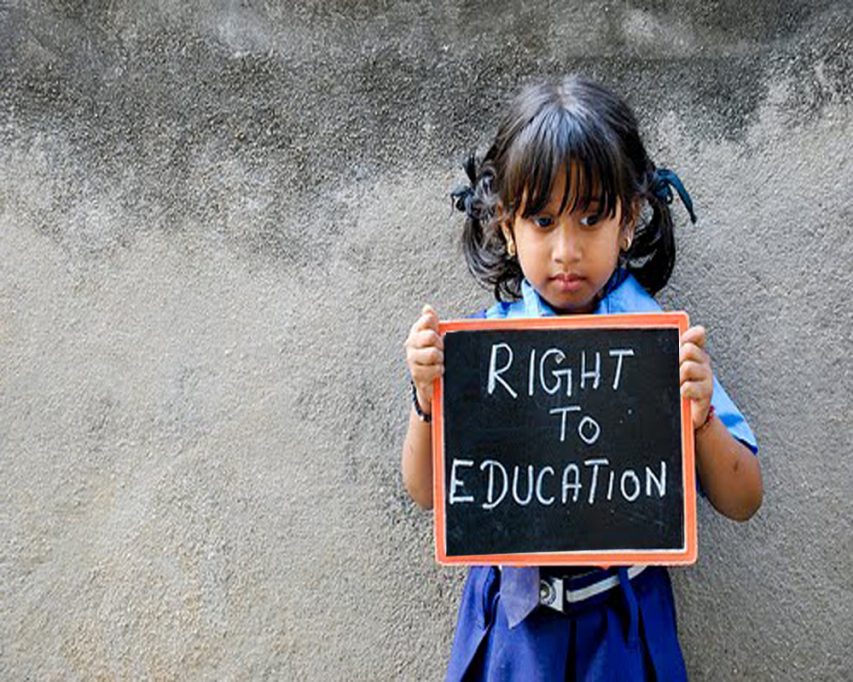Nidhi Sharma is the mother of a girl studying in class 11 of a prominent school in Delhi. Divya, her daughter, has opted for the Science stream and wants to make a mark for herself in the boards. Nidhi works in a multinational company and earns about Rs.24 lakhs (Approximately Rs.1.5 lakhs post tax; close to $2,000 per month) a year. Being a single mother, one of Nidhi's main concern is how to keep up with her daughter's rising education costs. She wants to be a provider to her daughter especially now, that she was separated from her husband. Divya goes to a nice private school and is doing well in her academics. But the school charges close to Rs. 20,000 per month (close to $350) for educating her. Of course this includes tuition fees, IT fees, fees for clubs, outstation trips, capital fee and a few other very imaginative heads under which they are charged.
Nidhi's dilema does not end there. As is the norm, everyone needs to go in for supplementary tuition to do well in her subjects. So every day after school, Divya rushes for her science classes to a tutor who her friends had identified. This tutor was a little more expensive than the others, but then one needs to be sure of the antecedants of the tutor too in the times that we live in. He charges about Rs.15,000 a month ($24 per month). If school education is like this, Nidhi dreads to think how expensive college education would be.

This is pretty much a problem that is gripping the Indian household. The Consumer Price Index has increased by 5.39% year-on-year in April 2016. Inflation rates have averaged 7.74% from 2012 to 2016. Parents are having a tough time balancing home budget despite both of them being employed. In an endeavour to give best of education to their children, many parents have also taken up part time jobs to earn extra bucks. In the last 10 years, the tuition fees and other expenses have gone up by 150% according to a report published by ASSOCHAM. School costs have risen at more than double the rate of inflation and come amid warnings to parents to plan early for their child's education. The Asian Development Bank in a study on shadow education, mentioned the rising demands of the supplementary classes arising primarily from parent-student anxiety and responsible for a systemic degradation of quality of education in the primary institutions.
In a recent survey conducted by Zigya, 300 of the members were approached with a survey to understand better the need of the industry and the consumers. The respondents chosen were a mix of students, teachers and private tutors. The survey, did not restrict itself to any particular demographic and was conducted across India. While 26.7% advocated the use of online learning as a way to manage costs, although being skeptical at the same time on the Internet availability and persistence in connection, a whopping 60% unequivocally believe that quality education should be available free of cost. 13.3% still preferred to buy books and teach their children in the traditional way. A parent from Bangalore said,
There is no reason why tuition centres are charging such a lot of money when they can use technology to their benefit, as the syllabus does not change every year.
73.3% of the respondents on viewing Zigya have liked the ability to browse unhindered, unlimited questions and answers, teachers to create assignments in no time and the possibility of checking answers to questions in the class. 20% of the respondents said that the clutter-free interface helps them browse questions and answers without any difficulty. 6.7% use the platform to check on the work done in class and to reinforce their learning. Says a student of Class 9 in Bhopal,
Zigya is a dream come true. We were looking for one place where we could find quality content relevant to us, without searching on Google too much.
Respondents believe that the ability of learning anytime, anywhere is the biggest advantage that the platform offers. 26.7% have demonstrated agreement on studying without any restrictions. 13.3% feel that using Zigya, they scored more in the final exams as they were able to articulate the answers properly. 6.7% also felt that it boosted their confidence in class by knowing answers to the questions that teacher posed. 53.3% agreed that Zigya offers the advantage of learning at the convenience of the student and helps children write answers that fetch them better scores in their evaluations. One of the respondents, a teacher who we caught up with, mentioned-
Sometimes children don't answer in class since they are unsure. I have seen Zigya has helped them boost their self-confidence by knowing all the answers to the questions so they are more interactive in class.
With times to come, with a platform like Zigya, Nidhi would soon be able to have Divya stop going for the expensive tuition classes and instead be able to study in the comfort and safety of her home. Globally, the trend for education is changing. The brick and mortar industry is getting rapidly replaced by the online learning. India, with its growth in Internet only second to China, is all poised to usher in this learning revolution.

It was the fifth cycle of the program and had been very successful in getting the youth to turn into more involved of their
research and extra understanding of math topics.
It is a very good thought because you will get the larger
picture from a single place.